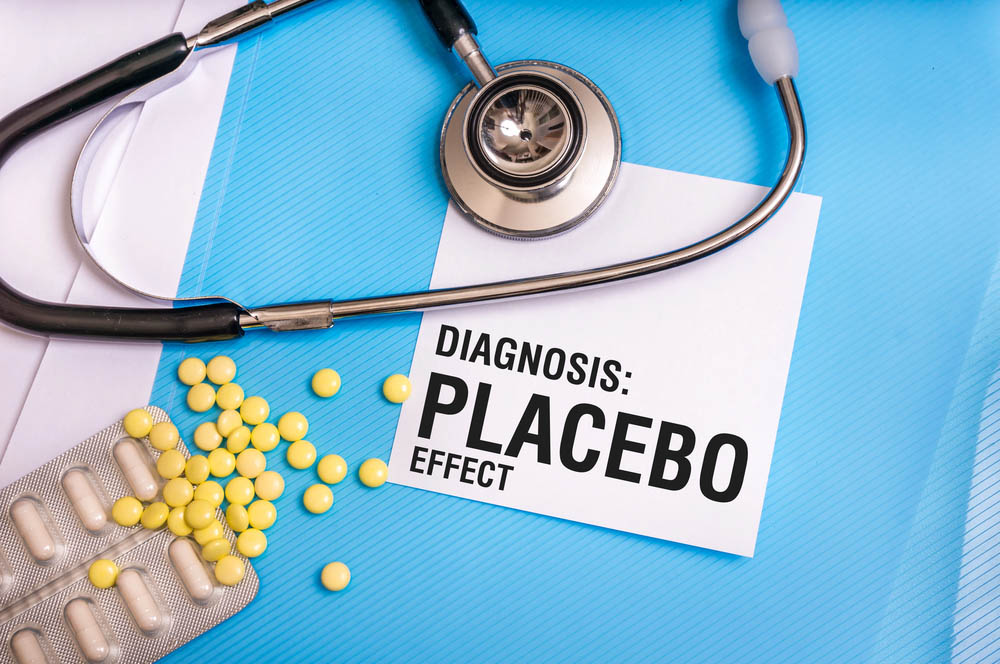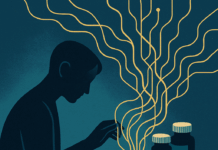In a recent study, researchers from the University of California, San Francisco (UCSF) found that optimism predicted response to antidepressant drugs. The researchers measured both baseline (pre-treatment) optimism and changes in optimism over time. They found that both of these measures correlated with antidepressant drug response.
“Our results suggest that baseline optimism and increases in optimism during treatment are associated with increased likelihood of SSRI treatment response in MDD,” the researchers write.
The study was led by Ari S. Coopersmith and published in The Journal of Positive Psychology.
The researchers expand upon a number of explanations for this finding, including theorizing about how antidepressants may chemically interact with the unknown, hypothetical biological causes of optimism. However, they ultimately acknowledge the role of the placebo effect.
Their takeaway is not that antidepressant drug use should be questioned. Instead, they write, now that we know the drugs work via the placebo effect, clinicians should “manage patients’ expectations” so that the placebo effect is stronger when they take the drug. They suggest adding positive psychology therapies on to antidepressant drug treatment—which they believe will increase patients’ “optimism” and thus improve the drug effect.
“Managing patients’ expectations may be an important part of clinical care,” they write, adding that “it is possible that psychological therapies aimed at increasing optimism (e.g. positive CBT) may augment antidepressant responses.”
















These articles are sorrow. The world was actual some mere 50 years ago. Now all it is is illusion, entropy, atrophy and sorrow. And everything in the human world is sorrow, besides moments of unguarded authenticity which are the mutant variants of this universal sorrow, containing tragedy as well as entropy, atrophy, wretchedness, egoism and sorrow. Being all worthless and meaningless in the human world, love may be the only tragedy in existence here today. But we must die completely to know what love is. Otherwise your love becomes your sorrow.
Report comment
No-one,
As one who shares a nickname with you, within the websites of my dreams – which are organized like the internet of the “collective unconscious” / dream world – which is probably why most people’s dreams are confusing to them. But of what I know of my awakenings to my dreams, makes sense to me, and they are where I find the common sense of all.
I will say last night I was a bad girl, I went to my local convince store to buy some ice cream. I was in line between two black woman. One was complaining about all the, largely financial based, problems in her life to the other. I don’t know if the women knew one another.
But gradually, I entered into the conversation … agreed with the complaining woman that it was difficult to live in a different state than the rest of her family. And asked her why she moved here. Eventually I asked the woman frustrated with life’s problems, if she’d do me a favor. I politely asked her to consider praying two prayers.
I asked her to pray one night to awaken with the Holy Spirit. Then when she felt ready, to pray to be moved by the Holy Spirit.
Initially, she was a bit defensive, since she hadn’t been going to church recently. As the listening black women was checking out she asked me about what religion I belonged to. I told both women I’m in between religions right now. But then I mentioned … that doesn’t mean you have to stop believing in the Triune God.
I then told them both I was friends with a couple pastors, who I used to work with, and I knew their hearts were in the right place. So I recommended their church to them. The complaining women then asked me for the prayer suggestions again, and she was so grateful, that she bought my ice cream for me, despite her financial problems. Of course, I did “pay it forward” for her in return.
But this whole personal story does lead me to the polite suggestion for you too, No-one, and everyone else, to please also consider praying those two prayers.
Report comment
When your affections and attachments have been privileged over recognizing the truth of things, then eventually the truth of things will confront you and destroy all your affections and attachments because life IS the truth, and falsehoods cannot survive within the truth for very long. And this is particularly true today. So hold fast always to the facts, to the actual, to the reality check on your life, world and relationships, because if instead you try merely to cling to your affections and attachments the facts of life will sooner or later destroy you as all you are clinging is either lost or becomes toxic and buries you within itself. This is the truth I’m afraid. You can mark my words on it. It is not immoral to reject the truth of yourself or your life but if you understand the actual consequences of doing so you will understand why the commitment to truth is true morality. Because we care about you. We don’t want anyone destroyed by their blindness. It’s immoral to not care about this and therefore about the truth above anything else. And anger at the truth is its own obvious tragedy.
PS, why is emotional attachment such a fundamental problem to overcome in order to become a free and healthy human being? Because attachments are not love, but forms of bondage, and where bondage is freedom is not and can never be. And this attachment is to your energy and your heart. If you ascend in truth and an understanding of life these attachments pull and suck at your energy and as your journey becomes more intense, they become black holes in your energy field, sucking in vast amounts of your energy in order to maintain themselves, attacking you inwardly and sabotaging your actions in order that they will not be exposed to the light. Anyone in your life who will not allow you to be free are your jailors and your butchers today. If they cannot understand this need to be free then cut the chord of your relationship and give up trying to explain yourselves to them. Accept that in some way all they want is your services, and couldn’t care less about your happiness or freedom. In the case of our parents those services are generally to provide security, to artificially inflate atrophied hearts and to sustain fragile and bitter egos, to maintain a false semblance of meaning in their lives, to fill their empty lives, and to give them someone to criticize and blame because their lives never became what they wanted it to be. So it subtly becomes your fault and you have a debt to them. Such toxic familial relations become the norm in this insane and ugly society, and if they can’t be free, you can’t be chained to them, because then you are chaining yourselves to a confused and desperate, dangerous human being. Cut them off completely. Let them try and sort themselves out on their own. You look after your own life and energy. Don’t let them raid, pillage and tax you and drag you into their early graves.
Report comment
“… why is emotional attachment such a fundamental problem to overcome in order to become a free and healthy human being? Because attachments are not love, but forms of bondage, and where bondage is freedom is not and can never be. And this attachment is to your energy and your heart. If you ascend in truth and an understanding of life these attachments pull and suck at your energy and as your journey becomes more intense, they become black holes in your energy field, sucking in vast amounts of your energy in order to maintain themselves, attacking you inwardly and sabotaging your actions in order that they will not be exposed to the light.”
No-one, this is an eerily accurate description of a life overtaken by psychiatry and all of its toxic attachments — the very things that make “anger at the truth its own obvious tragedy” so painfully real.
Report comment
Why not just tell people the truth: “Given enough time most depression clears up on its own. I see you as more than capable of allowing that to happen.”
Report comment
“it is possible that psychological therapies aimed at increasing optimism (e.g. positive CBT) may augment antidepressant responses.”
If this was true my son would be alive.
Report comment
I’m so sorry for what happened to your son. I think people in pain need to be listened to closely, not required to speak and act in ways they do not truly feel.
Report comment
All psych drugging of children, and people of child bearing age, needs to be ended, worldwide.
https://www.madinamerica.com/2025/05/two-decades-of-pssd-a-life-stolen-by-antidepressants/?unapproved=315191&moderation-hash=83001b859e241a39fa3bdab96651a954#comment-315191
I believe Jon’s story points out a very important reason why our society absolutely needs to stop psych neurotoxic poisoning all children, as well as all of child bearing age, who might possibly like to have children and live a normal and happy life … which is pretty much the entire population.
Thank you, Peter, for your continued truthful reporting.
Report comment
I’ll bet the diehard “bio” psychiatrists out there will use studies like this to get and keep people hooked its antidepressants — meaning that if one doesn’t work, well, there’s lots of others to try!
Report comment
That’s what they’ve been doing for decades, with all their psychiatric neurotoxins.
Report comment
Yes, but bullshit studies like this will be used to trap even more unsuspecting people on psychiatry’s smorgasbord of neurotoxins.
Report comment
—without question.
Report comment
Here’s the thing about antidepressants: They sometimes work a little bit, but they oftentimes cause very bad side effects both mental and physical, and they cause a form a strong chemical dependency. I was on both an antidepressant and an anti-psychotic. I tapered off the antidepressant first and it only took about 6 months. That’s because both of the drugs I was on seem to be on the same dependency pathway in the brain. But several months after I tapered off the antidepressant, I began to feel “depressed”. But I did experiments and made an amazing discovery: Certain food herbs and spices from the grocery store were actually more effective for me than the antidepressant ever was! I don’t trust the supplement makers and I always mix my own herbs and spices. I couldn’t say if these herbs and spices actually treat depression, or if they just help treat some kind of withdrawal symptoms from the antidepressant drugs. Most people would say that food herbs and spices can’t do anything and that it’s all in my mind. Believe what you may.
Report comment
Here’s the thing about psychiatry: it doesn’t distinguish between medicine and quackery—it just calls everything “treatment”.
Report comment